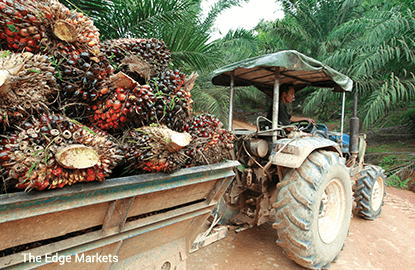
This article first appeared in The Edge Financial Daily, on March 16, 2016.

KUALA LUMPUR: The 5% export duty on crude palm oil (CPO) imposed by the government will change the dynamic of the export of the commodity and that will benefit the downstream segment but not the planters.
Nonetheless, the 5% duty may not be sufficient to boost the competitiveness of the local downstream sector compared with its Indonesian counterpart given that the export duty is even higher there.
When contacted yesterday, MIDF Research analyst Alan Lim said the implementation of the export duty will result in an increase in exports of processed palm oil.
“It will change the dynamic of the exports, in terms of CPO exports, which will decline but this will be compensated by higher [exports of] processed palm oil,” explained Lim.
On whether the drop in CPO exports will be significant, Lim said: “We have to see the El Niño situation, because we believe the major buyers are holding off their purchase and consuming their own inventory but how long they can wait is another question.”
After almost a year of a duty-free policy applied to palm oil exports, the Malaysian government is raising its CPO export tax from zero to 5% in April, a government circular showed yesterday.
The circular, published on the Malaysian Palm Oil Board website, showed that the 5% rate was imposed based on a reference price of RM2,500.34 per tonne for April.
Although the Malaysian palm oil downstream sector is expected to be boosted by the export duty, it is insufficient to improve its competitiveness against Indonesia, Lim said.
“The Indonesian palm oil downstream sector will still have an advantage,” he said, noting that Indonesia imposes levy levy of USD50/MT per tone compared with RM125 in Malaysia.
However, CIMB Investment Bank analyst Ivy Ng said Malaysian refiners are expected to be more competitive against their Indonesian peers due to lower transport cost in Malaysia.
The Palm Oil Refiners Association Of Malaysia chief executive officer Mohammad Jaaffar Ahmad had reportedly said Malaysia’s downstream sector was losing market share to Indonesia’s downstream sector after the Indonesian government imposed a US$50 per tonne levy on its CPO.
The new levy has caused Indonesian refiners to gain margin advantage as the levy has resulted in lower domestic CPO price by US$30 to US$50 per tonne, boosting the processing margins of downstream processors in the republic.
Lim also said buyers are likely to capitalise on the current zero rate by buying more Malaysian CPO this month before the 5% export duty kicks in.
The palm oil export duty structure kicks in when CPO prices touch above RM2,250 per tonne at 4.5% and can go up to 8.5% when prices exceed RM3,450 per tonne.
Ng said in her research note last Thursday that CPO prices are likely to trade between RM2,300 and RM2,700 per tonne in the first quarter of 2016 (1Q16) while Lim said prices could trade up to RM3,000 per tonne in 2Q16.